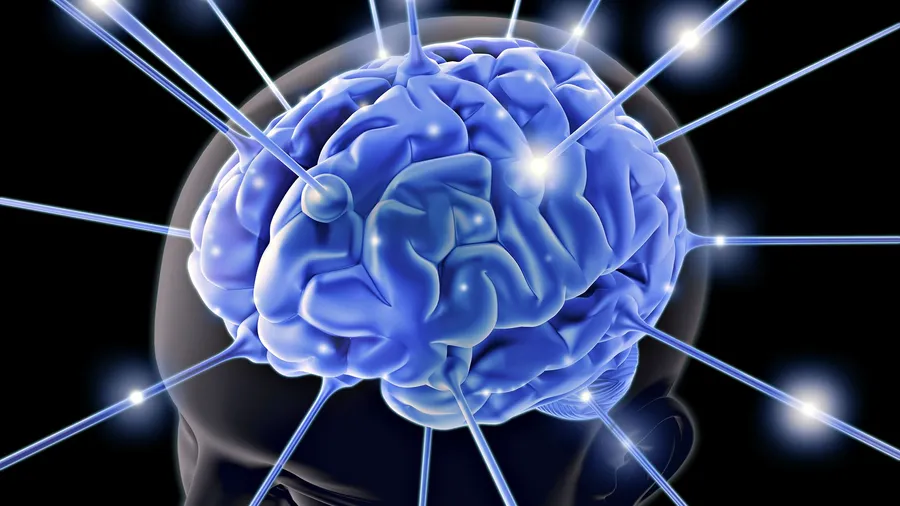Outline of the Article
- Introduction
- What is Physiological Psychology?
- Definition
- History and Development
- Subfields of Physiological Psychology
- Behavioral Neuroscience
- Cognitive Neuroscience
- Comparative Psychology
- Key Concepts in Physiological Psychology
- Neural Communication
- Neurotransmitters and Their Role
- Brain Structure and Function
- Sensation and Perception
- Methods and Techniques in Physiological Psychology
- Brain Imaging Techniques
- Electrophysiology
- Animal Models
- Applications of Physiological Psychology
- Mental Health
- Education and Learning
- Rehabilitation and Treatment
- The Future of Physiological Psychology
- Integrating Artificial Intelligence and Machine Learning
- Advances in Brain Stimulation Techniques
- Personalized Medicine and Precision Mental Health
- Understanding the Microbiome-Brain Connection
- Conclusion
- FAQs
What is Physiological Psychology?
Introduction
Hey there! Have you ever wondered how our brain and body interact to produce the thoughts, emotions, and behaviors that make us who we are? Enter the fascinating world of physiological psychology! In this article, we’ll explore the ins and outs of this intriguing field, its subfields, key concepts, methods, and applications. Let’s dive in!
What is Physiological Psychology?
Definition
Physiological psychology, also known as biological psychology or psychobiology, is a branch of psychology that seeks to understand the relationship between our physiological processes and psychological phenomena. It investigates how our nervous system, hormones, and genetics influence our thoughts, emotions, and behavior.
History and Development
The roots of physiological psychology can be traced back to the early philosophers and scientists who attempted to understand the mind-body connection. Key figures such as Charles Darwin, William James, and Ivan Pavlov contributed to the field’s development, while modern-day researchers continue to make groundbreaking discoveries about the brain and behavior.
Subfields of Physiological Psychology
Behavioral Neuroscience
Behavioral neuroscience focuses on the biological basis of behavior, exploring how the brain and nervous system influence our actions, emotions, and cognitive processes. It investigates topics such as memory, motivation, and emotion regulation.
Cognitive Neuroscience
Cognitive neuroscience delves into the neural mechanisms underlying higher cognitive functions, such as attention, decision-making, language, and problem-solving. It often uses advanced brain imaging techniques to uncover the neural networks involved in these processes.
Comparative Psychology
Comparative psychology examines the similarities and differences in behavior and cognitive processes across species. This subfield helps us better understand the evolutionary roots of our own behavior and mental processes.
Key Concepts in Physiological Psychology
Neural Communication
Our nervous system is composed of billions of neurons, specialized cells that transmit information through electrical and chemical signals. Neurons communicate with each other at specialized junctions called synapses, allowing for the rapid exchange of information throughout the brain and body.
Neurotransmitters and Their Role
Neurotransmitters are chemical messengers that transmit signals across synapses. They play a vital role in various psychological processes, including mood regulation, learning, and memory. Some well-known neurotransmitters include dopamine, serotonin, and norepinephrine.
Brain Structure and Function
The brain is a complex organ composed of different regions, each with specific functions. The cerebral cortex, for example, is responsible for higher cognitive processes such as thinking, planning, and problem-solving. Other brain areas, like the amygdala and hippocampus, play crucial roles in emotion and memory, respectively.
Sensation and Perception
Sensation and perception are fundamental aspects of our experience. Sensation refers to the process by which our sensory organs detect and respond to external stimuli, while perception involves the interpretation of these sensory inputs to make sense of the world around us.
Methods and Techniques in Physiological Psychology
Brain Imaging Techniques
Brain imaging techniques, such as functional magnetic resonance imaging (fMRI) and positron emission tomography (PET), allow researchers to visualize brain activity in real-time. These methods have revolutionized our understanding of the neural basis of cognitive and emotional processes.
Electrophysiology
Electrophysiology involves the study of electrical activity in the brain and nervous system. Techniques like electroencephalography (EEG) measure the brain’s electrical activity, providing insights into neural communication and brain function.
Animal Models
Animal models are often used in physiological psychology research to investigate the biological basis of behavior and cognition. These models allow researchers to study brain-behavior relationships in a controlled environment and help us better understand the neural mechanisms that underlie human behavior.
Applications of Physiological Psychology
Mental Health
The knowledge gained from physiological psychology research has significant implications for mental health. Understanding the biological basis of mental disorders, such as depression and anxiety, can lead to more effective treatments and interventions.
Education and Learning
Insights from physiological psychology can be applied to education, helping to improve teaching methods and learning strategies. For example, understanding how memory and attention work can lead to more effective study techniques.
Rehabilitation and Treatment
Physiological psychology also plays a critical role in the development of rehabilitation and treatment programs for individuals with neurological disorders or brain injuries. By understanding the brain’s plasticity and recovery mechanisms, more effective therapies can be designed to help patients regain lost functions.
The Future of Physiological Psychology
As we continue to make advancements in technology and research methods, the field of physiological psychology is poised for exciting discoveries and breakthroughs. Here are some areas where we can expect further progress in the coming years:
Integrating Artificial Intelligence and Machine Learning
Artificial intelligence (AI) and machine learning have the potential to revolutionize physiological psychology by enabling researchers to analyze vast amounts of data and identify patterns that were previously undetectable. This could lead to a deeper understanding of the complex relationships between genetics, brain function, and behavior.
Advances in Brain Stimulation Techniques
Brain stimulation techniques, such as transcranial magnetic stimulation (TMS) and deep brain stimulation (DBS), offer promising avenues for both research and treatment in physiological psychology. As these methods become more refined, we can expect to see even more effective interventions for a wide range of neurological and psychological conditions.
Personalized Medicine and Precision Mental Health
By combining insights from physiological psychology with advances in genetics and other fields, researchers are working towards developing personalized medicine approaches to mental health. This could lead to the development of customized treatment plans tailored to an individual’s unique genetic and physiological profile, ultimately improving patient outcomes.
Understanding the Microbiome-Brain Connection
Recent research has highlighted the potential role of the gut microbiome in influencing brain function and mental health. As we continue to explore this connection, physiological psychology will likely play a crucial role in understanding how our gut bacteria impact our thoughts, emotions, and behavior.
Conclusion
Physiological psychology is a fascinating field that explores the intricate connections between our physiological processes and psychological experiences. Through research in subfields like behavioral neuroscience, cognitive neuroscience, and comparative psychology, we continue to deepen our understanding of the brain and its role in shaping our thoughts, emotions, and behaviors. The applications of physiological psychology in mental health, education, and rehabilitation demonstrate the practical importance of this knowledge, ultimately improving the lives of countless individuals.
The field of physiological psychology continues to evolve, offering new insights into the intricate relationship between our brain and behavior. As technology and research methods advance, we can expect even more groundbreaking discoveries that will deepen our understanding of the human mind and improve our ability to treat various mental health conditions. The future of physiological psychology is undoubtedly exciting, and we can all look forward to the positive impact it will have on our lives and society as a whole.
FAQs
1. What is the difference between physiological psychology and neuropsychology?
Physiological psychology focuses on the relationship between physiological processes and psychological phenomena, while neuropsychology examines the relationship between brain function and cognitive processes, often in the context of brain injury or disease.
2. Can physiological psychology help us understand individual differences in behavior and cognition?
Yes! By examining the underlying biological factors that contribute to individual differences, physiological psychology can help us better understand why people think, feel, and behave differently.
3. What careers are available in physiological psychology?
Individuals with expertise in physiological psychology can work in various settings, including academia, research institutions, pharmaceutical companies, hospitals, and clinics. They may also work as consultants or advisors in fields such as education or mental health.
4. How do physiological psychologists study the brain?
Physiological psychologists use a variety of methods, such as brain imaging techniques, electrophysiology, and animal models, to investigate the neural basis of behavior and cognition. These techniques allow researchers to examine brain structure, function, and communication in both humans and animals.
5. How does physiological psychology contribute to our understanding of mental health?
Physiological psychology provides valuable insights into the biological basis of mental disorders, such as depression, anxiety, and schizophrenia. By understanding the role of genetics, neurotransmitters, and brain structure in these conditions, researchers can develop more effective treatments and interventions to improve mental health outcomes.






Leave a Reply